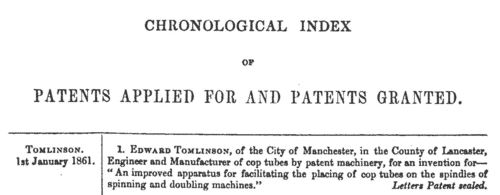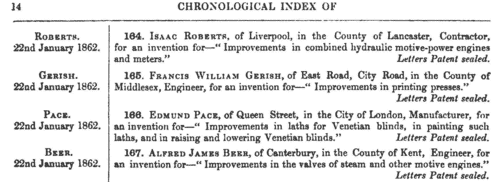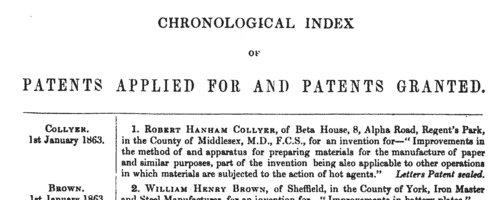Norman Rolls
(1200-1417)
The dukedom of Normandy is one of the appendages of the English crown, but actual possession of the dukedom was actively contested by the kings of France. During the periods of English power records were kept for Normandy similar to those of the royal administration in England, with enrolment of letters and grants of liberties and privileges and confirmations of previous enjoyed rights. The rolls for 1200 to 1205 and during the reassertion of English rule under Henry V in 1417, were edited by Thomas Duffus Hardy for the Commissioners of the Public Records, and published in 1835. Most of the persons mentioned are French inhabitants of Normandy or Englishmen in France, but there is also a long section (from page 122 onwards) of valuation of lands of Normans in England, where English jurors, county by English county, attest to acreage, numbers of cattle &c.LOYSEL. Cost: £4.00.  | Sample scan, click to enlarge

|
Official Papers
(1690-1691)
The State Papers Domestic cover all manner of business relating to Britain, Ireland and the colonies, conducted in the office of the Secretary of State as well as other miscellaneous records. Includes lists of passes to travel abroad.
LOYSEL. Cost: £4.00.  | Sample scan, click to enlarge

|
Allegations for marriages in southern England
(1687-1694)
The province or archbishopric of Canterbury covered all England and Wales except for the northern counties in the four dioceses of the archbishopric of York (York, Durham, Chester and Carlisle). Marriage licences were generally issued by the local dioceses, but above them was the jurisdiction of the archbishop, exercised through his vicar-general. Where the prospective bride and groom were from different dioceses it would be expected that they obtain a licence from the archbishop; in practice, the archbishop residing at Lambeth, and the actual offices of the province being in London, which was itself split into myriad ecclesiastical jurisdictions, and spilled into adjoining dioceses, this facility was particularly resorted to by couples from London and the home counties, although there are quite a few entries referring to parties from further afield. The abstracts of the allegations given here usually state name, address (street in London, or parish), age, and condition of bride and groom; and sometimes the name, address and occupation of the friend or relative filing the allegation. Where parental consent was necessary, a mother's or father's name may be given. The ages shown should be treated with caution; ages above 21 tended to be reduced, doubtless for cosmetic reasons; ages under 21 tended to be increased, particularly to avoid requiring parental consent; a simple statement 'aged 21' may merely mean 'of full age' and indicate any age from 21 upwards. These are merely allegations to obtain licences; although nearly all will have resulted in the issuing of the licence, many licences did not then result in marriage. LOYSEL. Cost: £4.00.  | Sample scan, click to enlarge

|
Traders and professionals in London
(1851)
The Post Office London Directory for 1851 includes this 'Commercial and Professional Directory', recording about 80,000 individuals. LOYSEL. Cost: £4.00.  | Sample scan, click to enlarge

|
Patentees of New Inventions
(1852-1853)
Abstracts of British patents for new inventions applied for and granted from 1 October 1852 to 31 December 1853: giving date, name and address, and short description of the invention. It is then stated whether 'Letters patent sealed' or 'Provisional protection only'.LOYSEL. Cost: £6.00.  | Sample scan, click to enlarge

|
Patentees of New Inventions
(1854)
Abstracts of British patents for new inventions applied for and granted from 1 January to 31 December 1854: giving date, name and address, and short description of the invention. It is then stated whether 'Letters patent sealed' or 'Provisional protection only'.LOYSEL. Cost: £6.00.  | Sample scan, click to enlarge

|
Patentees of New Inventions
(1860)
Abstracts of British patents for new inventions applied for and granted from 1 January to 31 December 1860: giving date, name and address, and short description of the invention. It is then stated whether 'Letters patent sealed' or 'Provisional protection only'.LOYSEL. Cost: £6.00.  | Sample scan, click to enlarge

|
Patentees of New Inventions
(1861)
Abstracts of British patents for new inventions applied for and granted from 1 January to 31 December 1861: giving date, name and address, and short description of the invention. It is then stated whether 'Letters patent sealed' or 'Provisional protection only'.LOYSEL. Cost: £6.00.  | Sample scan, click to enlarge

|
Patentees of New Inventions
(1862)
Abstracts of British patents for new inventions applied for and granted from 1 January to 31 December 1862: giving date, name and address, and short description of the invention. It is then stated whether 'Letters patent sealed' or 'Provisional protection only'.LOYSEL. Cost: £6.00.  | Sample scan, click to enlarge

|
Patentees of New Inventions
(1863)
Abstracts of British patents for new inventions applied for and granted from 1 January to 31 December 1863: giving date, name and address, and short description of the invention. It is then stated whether 'Letters patent sealed' or 'Provisional protection only'.LOYSEL. Cost: £6.00.  | Sample scan, click to enlarge

|
Research your ancestry, family history, genealogy and one-name study by direct access to original records and archives indexed by surname.












